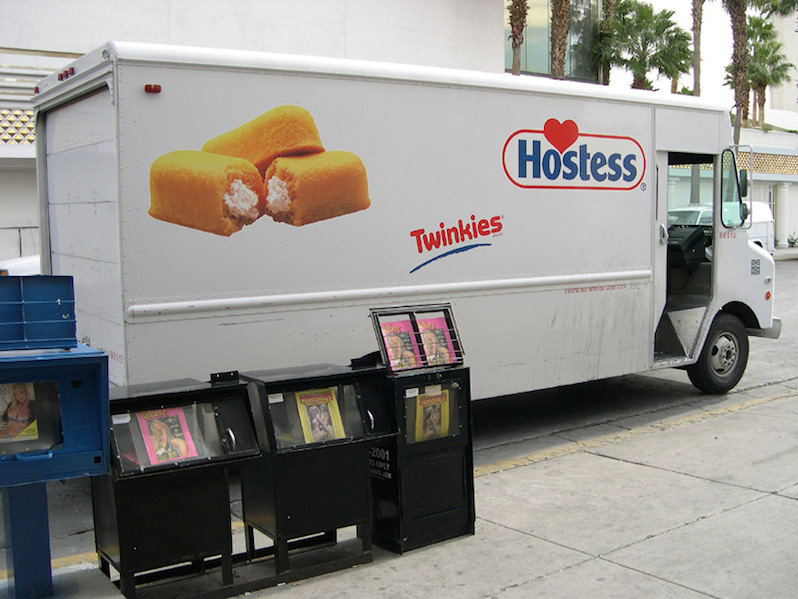How the Twinkie Provides a Blueprint for Amassing Wealth
Highlighting a deal involving Hostess, the company known for its sweet baked treats, an investigation by The New York Times shows how private-equity executives expanded their fortunes.
Hostess “is a textbook example” of how private-equity executives increase their wealth, The New York Times reports. (Flickr / CC 2.0)
It may seem unexpected that a groundbreaking investigative report centers around a cheap, massed-produced junk food, but that’s exactly the case in a new piece from The New York Times.
“How the Twinkie Made the Superrich Even Richer,” by Times writers Michael Corkery and Ben Protess, delves into the process by which private-equity executives significantly increase their fortunes.
“Private equity firms note that much of their top executives’ wealth stems from owning their own stock and that they have earned their fortunes bringing companies back to life by applying their operational and financial expertise,” Corkery and Protess write. “Hostess, a defunct snack brand that was quickly returned to profitability, is a textbook example of the success of this approach.”
The report explores how these successes often don’t trickle down to the average worker, and how workers’ frustrations affect America’s politics. Corkery and Protess write:
Since losing his job at Hostess in 2012, Mark Popovich has had three jobs, including one that paid about $10 an hour, half what he made at the Twinkie-maker. A lifelong Democrat and devoted “union man,” Mr. Popovich said he supported Mr. Trump, the first time he ever voted Republican.
“It’s getting old, getting bounced around all the time,” said Mr. Popovich, a 58-year-old Ohio resident.
Such frustrations stem from broader shifts in the economy, as all types of companies turn to automation to cut costs and labor unions lose their influence. While these changes have helped keep companies profitable, private equity has used these shifts in the workplace to supercharge wealth far beyond that of the typical chief executive.
And yet, Mr. Trump did not focus on private equity on the campaign trail, instead blaming the plight of the American working class on a shadowy cabal of elitist Democrats and Wall Street bankers who support trade deals that ship jobs overseas.
Corkery and Protess note, however, that “this is not a simple story of powerful investors enriching themselves while some workers struggle. Teachers and firefighters also benefit from private equity.”
By breaking down the evolution of one Hostess factory in Schiller Park, Ill., Corkery and Protess show how “private equity can have its snack cake and eat it, too,” through loopholes and other laws that apply to private-equity firms.
Read the entire report here.
—Posted by Emma Niles
Independent journalism is under threat and overshadowed by heavily funded mainstream media.
You can help level the playing field. Become a member.
Your tax-deductible contribution keeps us digging beneath the headlines to give you thought-provoking, investigative reporting and analysis that unearths what's really happening- without compromise.
Give today to support our courageous, independent journalists.






You need to be a supporter to comment.
There are currently no responses to this article.
Be the first to respond.